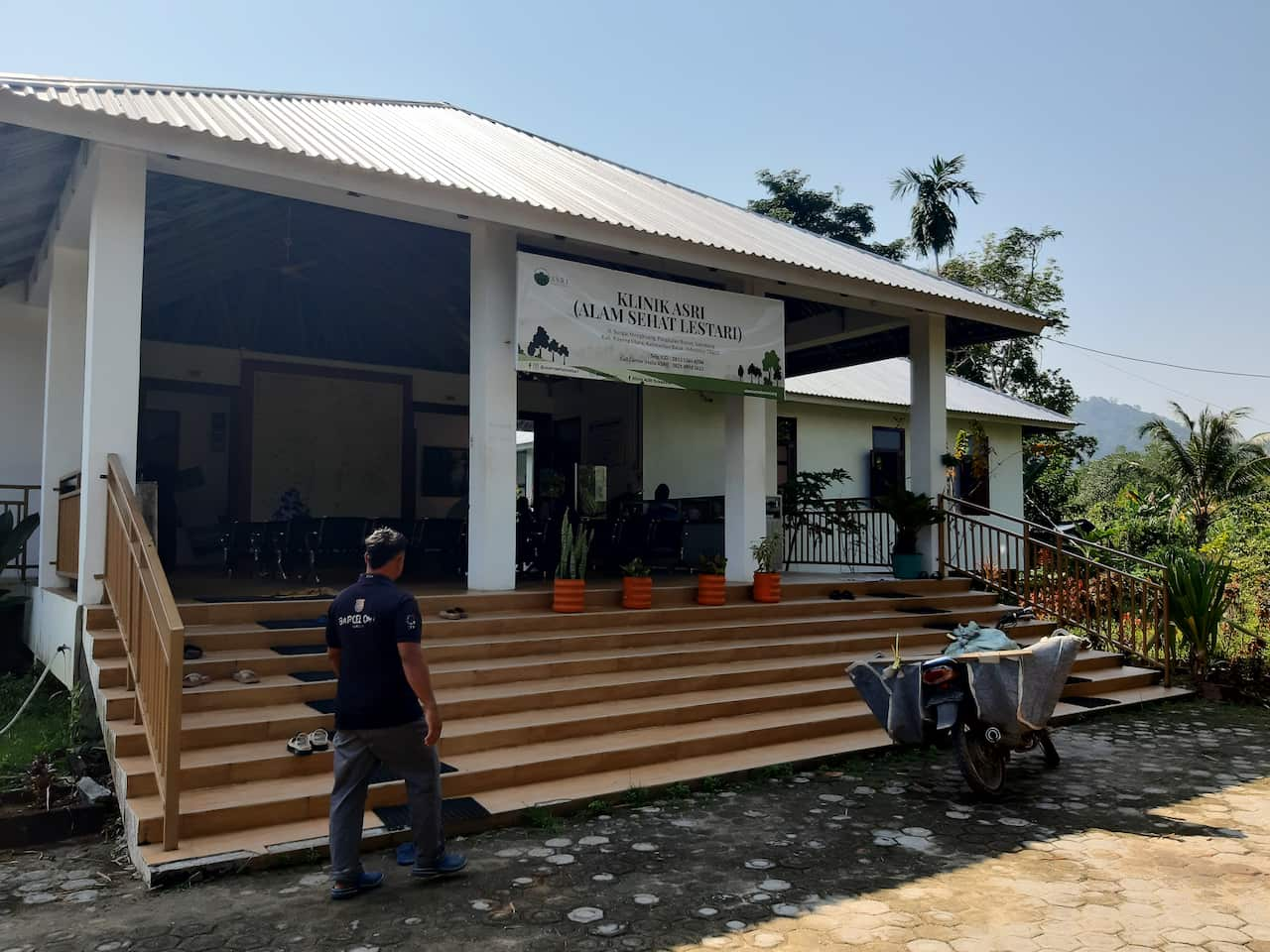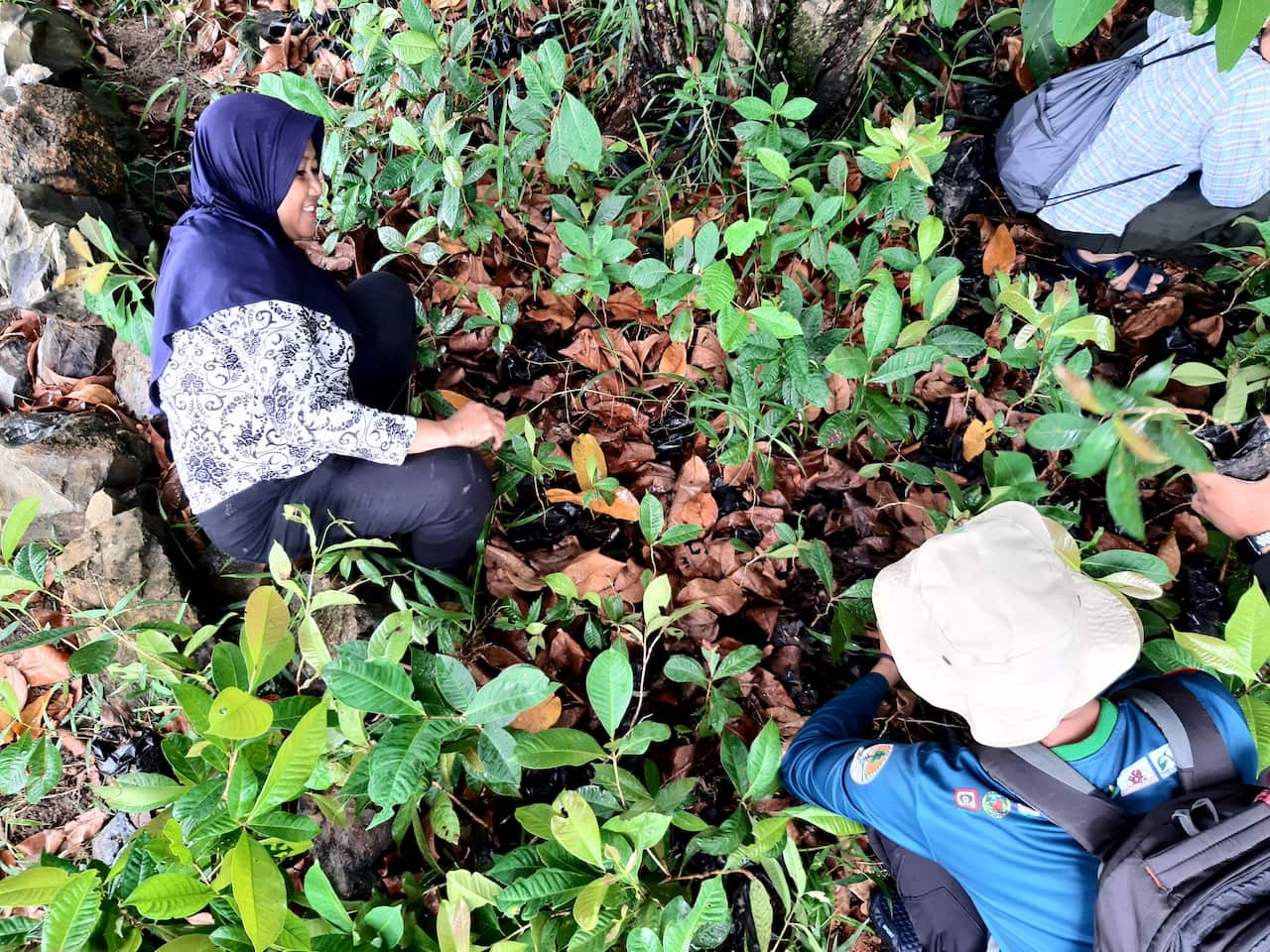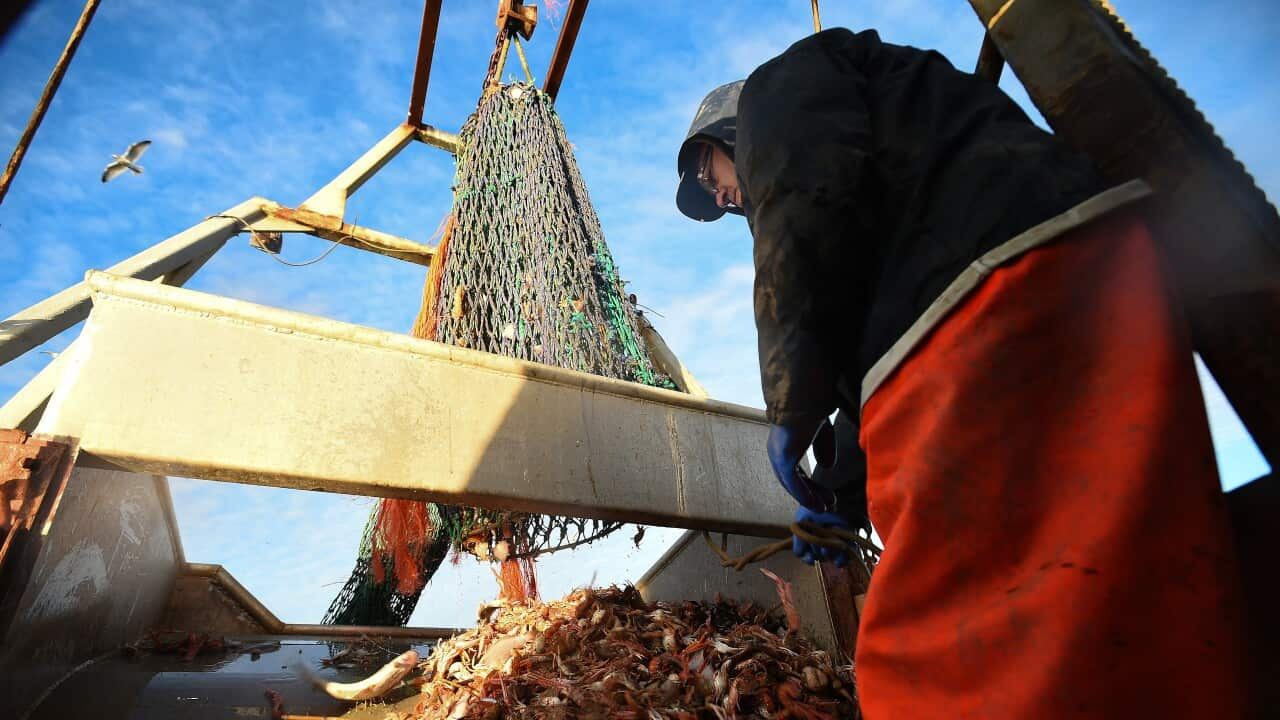In 1993, an American student, Kinari Webb, studied orangutans in Gunung Palung National Park in West Kalimantan where she saw rampant illegal logging practices carried out by local residents.
“It turned out that the community actually had a fairly good understanding of protecting the forest, but they were forced to cut down trees and sell the logs to afford health services,” said Indra, Director of the ASRI Kalimantan Foundation.
In 2007, ASRI (Alam Sehat Lestari) Clinic was officially opened to give access to health care to the people residing around the National Park.

Klinik ASRI in North Kayong Regency, West Kalimantan Credit: SBS Indonesian/Ade Mardiyati
ASRI Foundation also created a discount scheme for payment.
"If in one hamlet no activities that disrupt forest sustainability are found, then all residents can get a 70 percent discount," Indra said.
Local resident Mardalina or Lena once handed over thousands of tree seedlings to the clinic to pay for medical expenses and the dental prosthetics she needed.

Local resident Mardalina (L) or Lena once handed over thousands of tree seedlings to the clinic to pay for medical expenses and the dental prosthetics she needed. Credit: SBS Indonesian/Ade Mardiyati
One of the former illegal loggers, Amirudin, is now a kelulut or stingless bee farmer to produce honey thanks to the Chainsaw Buy Back program from the ASRI Foundation.
"We handed over our chainsaws, then ASRI helped us with business capital in return," the 35-year-old man said. "I don’t make as much as from logging, but my life is much more peaceful now."
Listen to the full podcast.




